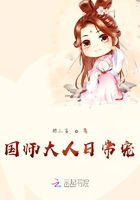Before he disappeared, he looked back to her again (which profoundly surprised her) and smiled rather disconsolately, shaking his head as in prophecy of no very encouraging reception indoors. The manner of this glance recalled to Laura what his mother had once said of him. "Richard is one of those sweet, helpless men that some women adore and others despise. They fall in love with the ones that despise them."
An ostentatious cough made her face about, being obviously designed to that effect; and she beheld her brother in the act of walking slowly across the yard with his back to her. He halted upon the border of her small garden of asters, regarded it anxiously, then spread his handkerchief upon the ground, knelt upon it, and with thoughtful care uprooted a few weeds which were beginning to sprout, and also such vagrant blades of grass as encroached upon the floral territory. He had the air of a virtuous man performing a good action which would never become known. Plainly, he thought himself in solitude and all unobserved.
It was a touching picture, pious and humble. Done into coloured glass, the kneeling boy and the asters--submerged in ardent sunshine--would have appropriately enriched a cathedral:
Boyhood of Saint Florus the Gardener.
Laura heartlessly turned her back, and, affecting an interest in her sleeve, very soon experienced the sensation of being stared at with some poignancy from behind. Unchanged in attitude, she unravelled an imaginary thread, whereupon the cough reached her again, shrill and loud, its insistence not lacking in pathos.
She approached him, driftingly. No sign that he was aware came from the busied boy, though he coughed again, hollowly now--a proof that he was an artist. "All right, Hedrick," she said kindly. "I heard you the first time."
He looked up with utter incomprehension. "I'm afraid I've caught cold," he said, simply. "I got a good many weeds out before breakfast, and the ground was damp."
Hedrick was of the New School: everything direct, real, no striving for effect, no pressure on the stroke. He did his work: you could take it or leave it.
"You mustn't strain so, dear," returned his sister, shaking her head. "It won't last if you do. You see this is only the first day."
Struck to the heart by so brutal a misconception, he put all his wrongs into one look, rose in manly dignity, picked up his handkerchief, and left her.
Her eyes followed him, not without remorse: it was an exit which would have moved the bass-violist of a theatre orchestra. Sighing, she went to her own room by way of the kitchen and the back-stairs, and, having locked her door, brought the padlocked book from its hiding-place.
"I think I should not have played as I did, an hour ago," she wrote. "It stirs me too greatly and I am afraid it makes me inclined to self-pity afterward, and I must never let myself feel THAT! If I once begin to feel sorry for myself. . . . But I WILL not! No. You are here in the world. You exist. You ARE! That is the great thing to know and it must be enough for me. It is. I played to You. I played JUST LOVE to you--all the yearning tenderness--all the supreme kindness I want to give you. Isn't love really just glorified kindness? No, there is something more. . . . I feel it, though I do not know how to say it. But it was in my playing--I played it and played it. Suddenly I felt that in my playing I had shouted it from the housetops, that I had told the secret to all the world and EVERYBODY knew. I stopped, and for a moment it seemed to me that I was dying of shame. But no one understood. No one had even listened. . . . Sometimes it seems to me that I am like Cora, that I am very deeply her sister in some things. My heart goes all to You--my revelation of it, my release of it, my outlet of it is all here in these pages (except when I play as I did to-day and as I shall not play again) and perhaps the writing keeps me quiet. Cora scatters her own releasings: she is looking for the You she may never find; and perhaps the penalty for scat-tering is never finding. Sometimes I think the seeking has reacted and that now she seeks only what will make her feel. I hope she has not found it: I am afraid of this new man--not only for your sake, dear. I felt repelled by his glance at me the first time I saw him. I did not like it--I cannot say just why, unless that it seemed too intimate. I am afraid of him for her, which is a queer sort of feeling because she has alw----"
Laura's writing stopped there, for that day, interrupted by a hurried rapping upon the door and her mother's voice calling her with stress and urgency.
The opening of the door revealed Mrs. Madison in a state of anxious perturbation, and admitted the sound of loud weeping and agitated voices from below.
"Please go down," implored the mother. "You can do more with her than I can. She and your father have been having a terrible scene since Richard went home."
Laura hurried down to the library.















